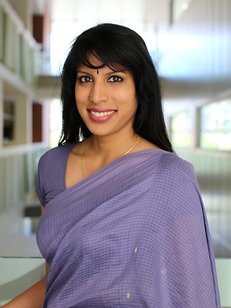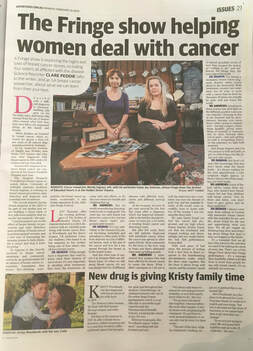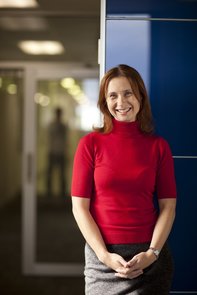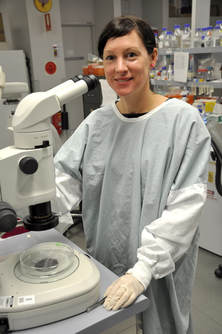|
The Royal Australian and New Zealand College of Radiologists (RANZCR) has updated its position on breast density reporting, recommending that all individuals attending mammography in Australia and New Zealand be notified of their breast density. The updated Breast Density Position Statement reads,
“Whilst a future risk-based model for breast cancer screening is being developed, RANZCR recommends mandating the reporting of breast density in both screening and diagnostic settings in Australia and New Zealand.” Accompanying recommendations include the importance of being breast aware, regardless of one’s breast density, and to consider all potential risk factors for breast cancer in combination. The Breast Density Position Statement also recommends validated tools to assess individual risk such as iPrevent and IBIS. The IBIS tool includes breast density in its risk assessment, iPrevent does not. The Breast Density Position Statement also stresses that “RANZCR supports discussion and collaboration between a patient and their healthcare team to encourage shared decision making.” BREAKING NEWS: South Australian women will soon be able to learn their individual breast density at all screening clinics
InforMD's Prof John Hopper spoke to Bridget Judd at the ABC about why breast density matters in the detection and risk of breast cancer.
High breast density appears as white areas on a mammogram. As cancers also show up white on a mammogram, density can mask breast cancer. Because of this, breast density can be used as "a predictor of what we call the interval cancer", explained Prof Hopper. "That's when you have a mammogram and you're given the all clear, and then in the interval before the next screen, the woman has a lump or whatever and it's diagnosed as a cancer," he said. "They tend to be nastier than screen-detected cancers." Prof Hopper also explained about the risk of developing breast cancer in women with high density, and highlighted that with advancements in testing, high density is found to only "really a problem" in about the "very extreme" one per cent. "My analogy is driving a car with faulty brakes — if you leave and the weather's fine and there's not much traffic around, you can get away with it," he said. "But once something starts to happen that puts you at risk, such as your environment changes or your underlying risk factors change because of bad weather and things like that, suddenly having faulty brakes is a real problem." Dr Sandy Minck, Dr Alia Kaderbhai and Kirsten Pilatti, CEO of Breast Cancer Network Australia were also interviewed. "Women who are concerned about about their breast cancer risk should chat to their GP about their breast cancer risk as a whole and the topic of breast density can come into that," said Dr Kaderbhai. Read the full article here.  INFORMD's A/Prof Wendy Ingman spoke to Mariella Attard about new U.S. research study suggesting that premenopausal women with a strong family history of breast cancer are more likely to have dense breasts. Read the full article here. One show at this year's Adelaide Fringe Festival explores the true stories of four strong women touched by breast cancer. Science Reporter CLARE PEDDIE talks to the show's creator, with a prominent Adelaide breast cancer researcher, Associate Professor Wendy Ingman, about what we can learn from them. Published in the Advertiser 25/2/2019
 We wish Dr Pallave Dasari a warm congratulations on being named as one of 30 Super Stars of STEM (STEM stands for Science, Technology, Engineering, and Mathematics). The award was announced this week by the Minister for Industry, Innovation and Science, Arthur Sinodinos. Pallave is a breast cancer researcher in A/Prof Wendy Ingman’s lab at the University of Adelaide, based at The Queen Elizabeth Hospital. Pallave has worked tirelessly behind the scenes of INFORMD. She played a big role in helping to organise the public awareness campaign we ran last year, was a co-author of our article in The Conversation, and helped put together our website. She also got our social media up and running by setting up our Facebook and Twitter pages. The Superstar award is coordinated by Science and Technology Australia, who will be working with these dynamic scientists and technologists to create role models for young women and girls, smash stereotypes, and carve out a more diverse face for science, technology, engineering and mathematics. More than 300 applicants vied for a spot to be a Superstar, with the successful candidates being equipped through the program with advanced communication skills and providing them with the opportunities to use them - in the media, on the stage, and in speaking with decision-makers.
It is wonderful Pallave’s hard work has been recognised by this award and we look forward to hearing more from this Superstar in the future. Congratulations again! There isn't anything funny about breast cancer, but one Australian survivor is using comedy to spread an important lifesaving message. Channel 10 news caught a glimpse of Lana Schwarcz at the Adelaide Fringe and her show "Lovely Lady Lumps". The message? Early detection saves lives, go and get a mammogram! Lana is now helping INFORMD raise awareness of breast density as part of her show, thanks Lana!
BY INFORMDOctober marks international breast cancer awareness month. This year, an alliance of Australian breast cancer researchers launched INFORMD to raise awareness about the importance of breast density in the prevention and diagnosis of breast cancer. Associate Professor Wendy Ingman speaks about the launch of the INFORMD campaign and how breast density matters. Following a mammogram, Pip Brennen from Western Australia, learned she had dense breasts. Like many women, she did not know what this meant. Currently, Western Australia is the only state which requires reporting on breast density. 9 News spoke to Pip and INFORMD founder Professor Jennifer Stone from the University of Western Australia about the importance of women being informed about their breast density. In other news, INFORMD founder Professor John Hopper from the University of Melbourne was interviewed by 7 News. His research team has developed a new way to interpret mammograms to predict which women have a greater risk of developing breast cancer in the future. Melbourne scientists breakthrough to predict which women will develop breast cancer INFORMD was also featured in The Conversation and news.com.au.
That's all for October, but check back next month for more news. |
Archives
December 2023
Categories
All
|





